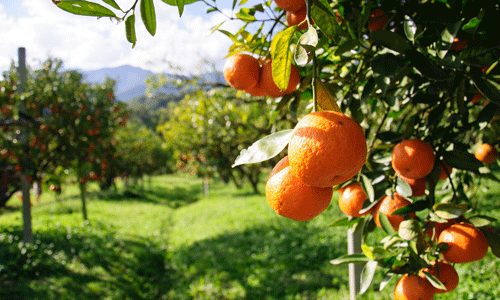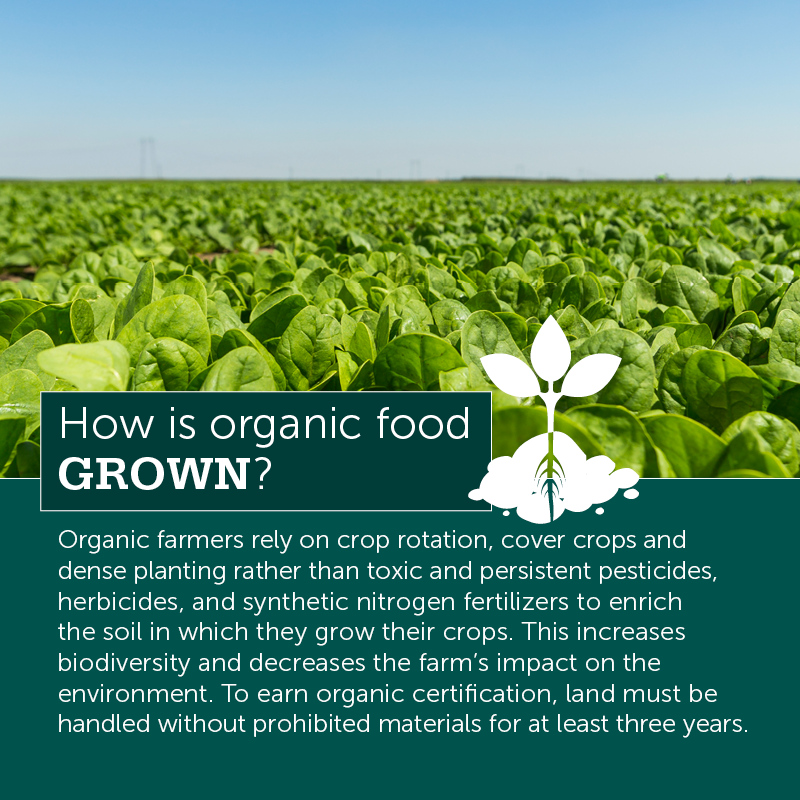 Organic agriculture, which is governed by strict government standards, requires that products bearing the organic label are produced without the use of toxic and persistent pesticides and synthetic nitrogen fertilizers, antibiotics, synthetic hormones, genetic engineering or other excluded practices, sewage sludge, or irradiation.
Organic agriculture, which is governed by strict government standards, requires that products bearing the organic label are produced without the use of toxic and persistent pesticides and synthetic nitrogen fertilizers, antibiotics, synthetic hormones, genetic engineering or other excluded practices, sewage sludge, or irradiation.
Guided by these and other standards, organic is the most heavily regulated and closely monitored production system in the United States.
Organic farmers understand that what you put into the soil has a profound impact on what you get out of it. That is why they rely on such practices as hand weeding, mechanical control, mulches, cover crops, crop rotation and dense planting, rather than toxic and persistent pesticides, herbicides, and synthetic nitrogen fertilizers, to enrich the soil in which they grow their crops.
They recognize that doing so provides plants with the nutrients they need to grow. Plus, it enables the absorption of major and micro-nutrients like Vitamin C, resulting in a higher nutrient content and often a better tasting crop.
It all starts with practices to help build healthy soils, which nurture the plants and help decrease the incidence of plant disease. In order to earn organic certification, land must be handled without prohibited materials for at least three years. With certification, organic farmers must develop an organic operating farm plan, which is overseen by their certification agency with annual third-party inspections.

U.S. Organic Standards Natural vs. Organic Organic Farming Practices
